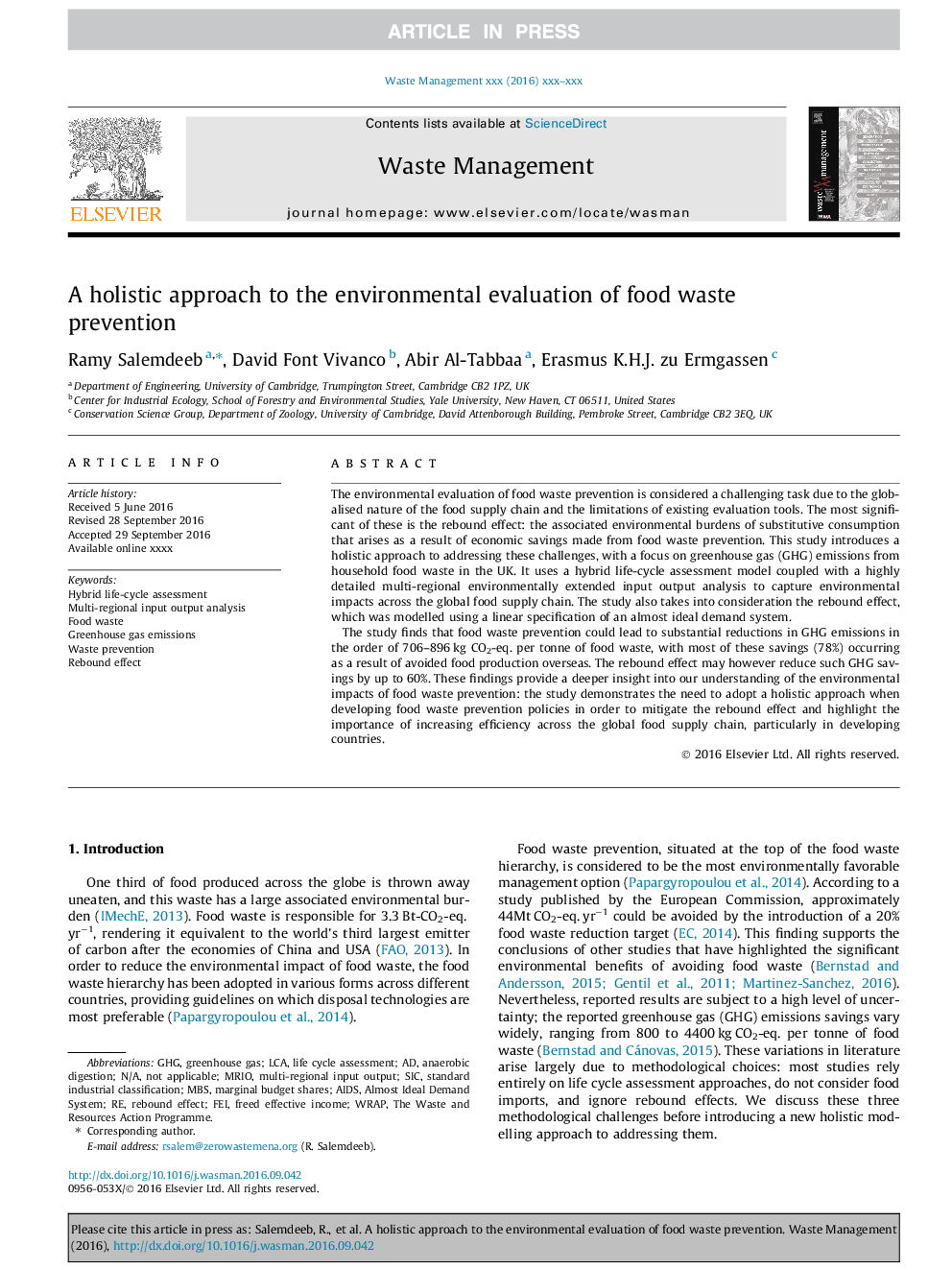| Article ID | Journal | Published Year | Pages | File Type |
|---|---|---|---|---|
| 5757048 | Waste Management | 2017 | 9 Pages |
Abstract
The study finds that food waste prevention could lead to substantial reductions in GHG emissions in the order of 706-896Â kg CO2-eq. per tonne of food waste, with most of these savings (78%) occurring as a result of avoided food production overseas. The rebound effect may however reduce such GHG savings by up to 60%. These findings provide a deeper insight into our understanding of the environmental impacts of food waste prevention: the study demonstrates the need to adopt a holistic approach when developing food waste prevention policies in order to mitigate the rebound effect and highlight the importance of increasing efficiency across the global food supply chain, particularly in developing countries.
Keywords
Related Topics
Physical Sciences and Engineering
Earth and Planetary Sciences
Geotechnical Engineering and Engineering Geology
Authors
Ramy Salemdeeb, David Font Vivanco, Abir Al-Tabbaa, Erasmus K.H.J. zu Ermgassen,
